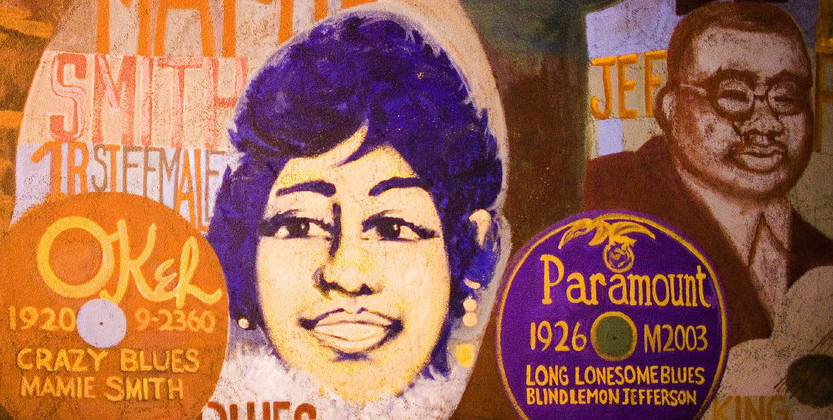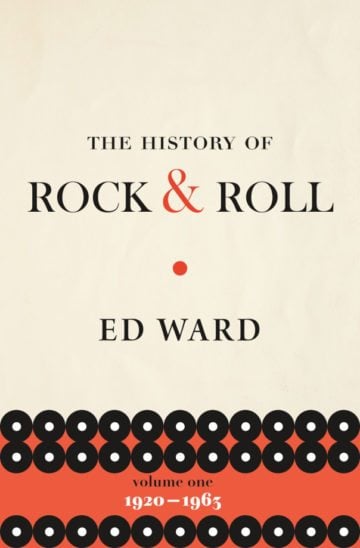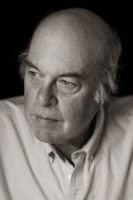
Austin Writer Ed Ward Celebrates the Black Musicians Who Made Rock

Austin’s Ed Ward Celebrates the Black Musicians Who Made Rock
‘The History of Rock & Roll’ pays tribute to some lesser-known pioneers of the genre.
One day in 1920 — the exact date is in dispute, because it wasn’t thought notable at the time — a black vaudeville singer named Mamie Smith walked into the offices of Okeh Records in New York City to record a song called “Crazy Blues.” She only got the chance because a white singer was sick and had to cancel. Smith’s record sold more than 1 million copies within the year and paved the way for the rise of African-American music in the mainstream, but today few people know her name.

By Ed Ward
FLATIRON BOOKS
$35; 416 pages
No other historian has linked the beginning of rock and roll to Smith’s breakout hit, as Ed Ward does in his new book, The History of Rock & Roll. The first in a two-part series, the book manages to be both encyclopedic and absorbing, and it’s less a history of rock itself — volume one ends in 1963, just as Beatlemania is poised to infect the country — than a celebration of the lesser-known musicians and producers who laid the groundwork for the genre.
Ward, an Austin-based writer and Fresh Air commentator who helped found the SXSW music festival, leaves no corner of the early American music industry unexplored, covering slave spirituals and gospel as well as ragtime, blues and R&B. He mentions towering figures such as Billie Holiday and Muddy Waters, but he’s equally if not more excited about the likes of Willie Mae “Big Mama” Thornton, a black singer-songwriter who was the first to record “Hound Dog” three years before Elvis got all the credit, and Johnnie Ray, a gay and partly deaf R&B musician known for sobbing at the microphone. Readers can’t possibly remember all of the 900-plus personalities in the book, but Ward’s spirited prose — mentioning the Chipmunks as briefly as possible, he writes, “The pesky rodents were preparing for their second annual assault on the charts” — keeps the barrage of information from becoming overwhelming. He spoke with the Observer about the importance of looking beyond the “great performer” approach to music history.
The very first kind of music you mention in the book is the field hollers of African-American slaves. Why start there?

Because one of the most important things that makes American music American is the African-American connection. The slaves were uprooted from their entire culture and were mixed in with slaves from other places, creating a new African-American cultural identity. They didn’t cleave to the same scales and rhythmic notions that European music did, and that made a big difference. It’s also what made the music popular — because it sounded different.
The Fisk Jubilee Singers, for example, were the first African-American musicians to take their music to Europe, and they were a triumph. Queen Victoria saw them twice, and what they were doing was very genteel interpretations of Negro spirituals. Their music director, a white guy, made sure that they used blues notes and elements that were typical of black folk music, because those were the new sounds that people wanted to hear. A lot stuff flew beneath the national radar because it was for minorities, and it was the rise of the phonograph that made this music possible from a commercial viewpoint.
You write that you deliberately avoided focusing too much on big names.
Unfortunately, that’s what’s always been done. All these stupid books say that rock and roll began when Elvis walked into Marion Keisker’s office [to record for the first time] in 1953, and that’s simply untrue. Nobody seems to know about what happened in the 1940s and earlier, beyond the big names and the major cities. I wanted to show that long before the Beatles, there was a lot of vital stuff going on.
Look at Texas — although Texas musicians will have a much bigger role in the second volume, because recording was still very regional this early on — but [blues and gospel guitarist] Blind Lemon Jefferson, for example, had an immense influence. Later you have Bob Wills inventing the Texas style, and then Don Robey will become a huge factor in rhythm and blues with his empire in Houston. There are so many Texas musicians who are important to this story.
Something that comes up again and again in the book is the lasting significance of small coincidences. Why?
Anybody who wants to portray the music industry as a highly rational, well-organized business is out of their mind. Mostly people didn’t know what they were doing. I knew the story pretty well going in, but there were weird little things I learned as I was researching. I knew that John Dolphin, who owned a record store and label in Los Angeles, was murdered in his office by a songwriter he owed money to. What I did not know was that there were three kids waiting in the office to audition for him. One was Sandy Nelson, who became a very successful drummer later on, and one was Bruce Johnston, who comforted the murderer and offered to make a deal with him for the songs he would write in prison. Johnston later joined the Beach Boys. So yes, you never know how things are going to play out.
How did the modern music industry evolve from this history?
Everyone talks about the technological change, and obviously that was a huge shift. The second book will close in 2000 with the advent of Napster for the reason that it destroyed pretty much everything I’ve written about up till then. But there’s also been a really large social change. Besides people feeling entitled to other people’s work for free, music is no longer the central fact of teenage culture like it once was. A kid in middle school now could be in a band, or could be a coder or an extreme sports athlete or any number of things. Youth culture has changed and many of those changes are obviously for the better … but if you want to get really sentimental, you could say that rock and roll helped make that world even as it was dying. The old way gave birth to the new way, but in the end it destroyed itself, too.
What can musicians and fans today learn from the past now that civil rights are under attack again?
Unfortunately, the music business isn’t like it was, and it’s not going to be easily focused on social change. But musicians and fans do have power. Look at how the civil rights movement used music as a social binder — you know, everybody singing “We Shall Overcome,” but also the broader folk music revival of the 1960s and what came out of that. Musicians can still provide a soundtrack for resistance, which is certainly going to be necessary.
This interview has been edited for length and clarity.
Image via Thomas Hawk on Flickr

